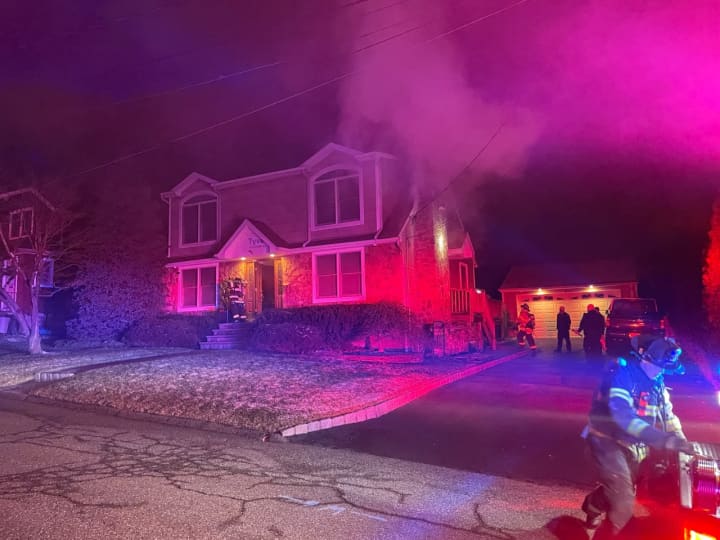The Chestnut Street resident safely fled the two-alarm 11:30 p.m. blaze, Fire Chief Christopher S. Ulshoefer said. No injuries were reported.
The fire, which damaged the first and second floors, was declared under control in about 20 minutes, the chief said.
Mutual aid responders at the scene or in coverage included firefighters from Demarest, Dumont and Tenafly.
NOTE: A vast majority of the more than 25,000 chimney fires reported in the U.S. each year can be prevented, fire officials say.
Among their tips:
- Burn only seasoned or dried out wood. It will be dark, with cracks in the end and should sound hollow when struck against another piece;
- Ignite your fire with clean newspaper or dry kindling. Amazing to have to say it, but don’t ever use gasoline or kerosene – or cardboard boxes, wrapping paper or a dried-out Christmas tree, for that matter;
- Burn large logs rather than small whenever possible;
- Schedule regular chimney inspections and cleanings.
Local contractor Douglas Lee of American Chimney Service recommends having chimneys inspected and cleaned roughly once a year – or about every 80 burns.
This avoids a build-up on the chimney walls of creosote, a byproduct of burning wood that could cause a house fire, he said.
Just as importantly, Lee urges homeowners to have their chimney furnaces checked annually.
SEE: Be Sure Your Fireplace, Chimney Furnace Are Safe, North Jersey Expert Warns
Click here to follow Daily Voice Cresskill-Closter and receive free news updates.


